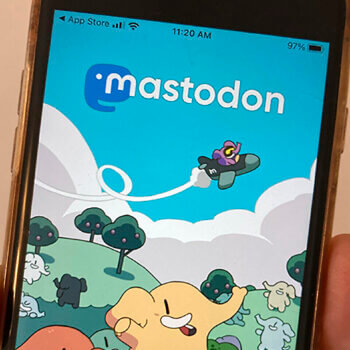Key Takeaway:
Stoicism, a philosophical school popular in ancient Rome, is often associated with happiness and productivity. However, Stoic TikTok, a popular social media platform, often misinterprets its ideas. Stoicism was traditionally divided into three branches: ethics, physics, and logic. Stoic TikTok focuses on knowledge through reading quotations or practicing mental exercises, but it doesn’t fully understand the deep, rich, and logically defensible knowledge of the world and our place in it. It also ignores Stoic physics, which Stoics used to explain the natural processes in the universe. Stoic ethics believe that happiness is a matter of having virtues and lacking vices, and that health, wealth, and status are “indifferents” to happiness. While Stoic philosophy is a rich and sophisticated philosophical tradition, it may not provide the happiness and productivity people seek in modern terms.
I don’t know about you, but my TikTok is full of influencers telling me I should be a Stoic. You might know the term “stoic” as a person who goes through hardship while maintaining a steely and calm disposition, and never complains. However, a stoic is also someone who prescribes to the philosophical school of Stoicism.
Stoicism became popular in ancient Rome. Stoic TikTok exclusively draws on Roman Stoicism, mainly Epictetus (a formerly enslaved person), Seneca (a fabulously wealthy and self-aggrandizing advisor to the emperor Nero), and Marcus Aurelius (who was himself a Roman emperor).
But the school goes back much further to ancient Athens, where Stoicism was founded around 300BCE by Zeno of Citium. After Zeno, Stoicism flourished in Athens, especially under Chrysippus, known as the second founder of Stoicism.
On TikTok, you’ll see people saying that Stoicism is a great way to lead a happy and productive life. I’m a professional philosopher who specialises in ancient Greek philosophy – and it’s great, if somewhat surprising, to see how popular Stoicism has become over the last ten years. But as a philosopher, I’m not a Stoic – and Stoic TikTok gets quite a lot wrong about this way of thinking.
Despite what you see on TikTok, Stoicism was a dry, technical, ivory tower philosophy. Its ideas around happiness and productivity diverge quite a bit from what modern people consider these to be. Traditionally, it was divided into three branches: ethics, physics, and logic – much of which TikTok’s Stoic preachers don’t get quite right.
Logic
Distinctively, the Stoics emphasised logic, comparing it to the shell of an egg or the bones and sinews of a body, because logic protects (like a shell), supports (like bones) and connects (like sinews) our beliefs and knowledge. In fact, the Stoics developed a systematic logical theory which, through various historical twists and turns, inspired 20th-century logic and hence theoretical computer science.
The Stoics took logic seriously because it was needed for knowledge. For the Stoics, to know something – including how to live well – was to understand it so totally that you could defend your view against any degree of argumentative scrutiny, against any opponent. In other words, they used logic to win a sort of philosophical Hunger Games.
But Stoic TikTok isn’t really interested in a deep, rich and logically defensible knowledge of the world and our place in it. In so far as Stoic TikTok is interested in knowledge, it implies that you can get knowledge by simply reading quotations of famous Stoics or practising certain mental exercises, such as meditating on death.
Physics
Stoic TikTok also ignores Stoic physics – the principles that Stoics used to explain the natural processes in the universe. For the Stoics, everything that exists, including your soul and God, is a body. God, in fact, is “mixed with matter, pervading all of it and so shaping it, structuring it and making it into the world”, as the critic Alexander of Aphrodisias told us in the early third century.
The Stoics argued that, since God is rational and active, this makes everything that exists in the world rational and organised for the best. You are part of this rational universe so, if bad things happen to you, it would be irrational to complain – as if your foot complained about getting muddy.
This idea of a rational universe is popular with Stoic TikTok, and can be seen in posts telling followers to “love their fate”. They suggest that true happiness comes from accepting anything that happens.
But does loving your fate in a truly Stoic sense achieve the sort of productivity and happiness most people want? I think not.
Ethics
Which brings us to Stoic ethics. While Stoic TikTok promises productivity and happiness, it’s unlikely you’ll achieve the levels of productivity and happiness you actually desire if you go by what Stoics believed these to be.
Happiness, for a Stoic, was a matter of having virtues and lacking vices. Everything else – including health, wealth and status – were “indifferents”, because they made no difference to your virtue, and so to your happiness.
So, even if the self-helpy advice of Stoic TikTok could make you more productive, being more productive won’t make you be happier, according to Stoic philosophy. At best, you’ll acquire health, wealth or status, but those things are indifferent to your happiness.
There is, of course, something hypocritical about Seneca arguing that wealth is indifferent while being one of the richest men in Rome; or Marcus Aurelius saying that power is indifferent while being emperor.
It is rational to prefer to be healthy rather than ill, rich rather than poor, powerful rather than oppressed. In fact, there was nuanced ancient debate in which the Stoics tried to find a middle way between a view where health, money and power are simply good, and a view where they are totally irrelevant to living a good life.
Chrysippus tried to steer this course by saying that while health, wealth and power are indifferent, how you use them is not. If I use power intemperately or wealth to indulge my most disgusting appetites, I will not be virtuous or happy. Personally, I don’t think the Stoic philosophy will ultimately solve this problem of whether health, wealth and power are totally indifferent to happiness, but it is an open question.
I’ve not touched here on the more sinister aspects of Stoicism on the internet, discussed in Donna Zuckerberg’s Not All Dead White Men. Rather, I’ve tried to point out what Stoic TikTok misses, because I hope people dive deeper into Stoic philosophy. A great place to start is Tad Brennan’s The Stoic Life.
Stoicism is a rich, fascinating and sophisticated philosophical tradition. But, if you’re looking for happiness and productivity in more modern terms, the Stoics might not have the answer.





























